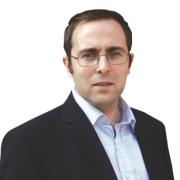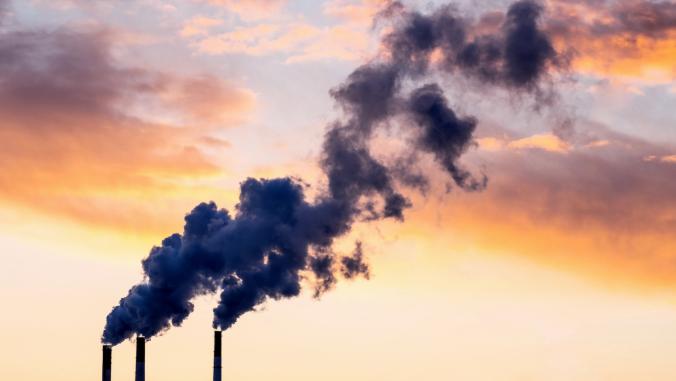Fort Collins aims to grow greener with new solar garden
<p>Thanks to bold initiatives, the Colorado city hopes to become a zero-energy district. </p>

Sunshine photo by WhiteTag via Shutterstock
You may have heard of solar farms, solar parks and solar rooftops, but now the Coloradan community of Fort Collins is looking to grow what may be the world's first "solar garden."
The cleverly branded initiative is the brainchild of FortZED, the city's program for establishing a zero-energy district that is aiming to cut emissions 20 percent by 2020 against 2005 levels and significantly increase its use of renewable energy. "We've got a goal to generate six percent of our power from renewables by 2015, rising to 10 percent by 2020," explained Steve Catanach, light and power operations manager at the municipally owned Fort Collins Utilities and one of the architects of FortZED. "But we're currently examining that goal and will probably double it."
A compelling proposal
To that end, the city's authorities are currently talking to prospective commercial partners who could deliver a 300kW solar garden that people from across the community will be able to invest in. "The aim is to allow people who don't have the ability to install rooftop solar panels — because the roof isn't right or they have a tree shading their property — to get the same net metering benefit that they would have if they were able to put the solar on their roof," explained Catanach. He confirmed that FortZED is currently looking at several potential sites for the solar garden within city limits "because people want to be able to drive past and know they own part of that." He also predicts that if the project proves successful, a second, larger development could be located outside of town, allowing more people to take part in the scheme.
For a state that famously receives 300 days of sunshine a year, this is a compelling proposal that will build on a feed-in tariff scheme providing 20-year contracts to those households and businesses that can install solar technologies themselves. Catanach says Fort Collins has learned the lesson from previous schemes in Germany and Spain that experienced boom and bust cycles, and has capped the fund for the first wave of feed-in tariff contracts at $500,000. "There's tremendous interest in the community for solar," he added, predicting that the scheme will provide another 5MW to 7MW of new renewables capacity.
Fort Collins' sustainability commitment
The support for solar power is just one part of a multi-pronged strategy designed to establish Fort Collins as one of the greenest communities in the U.S. Plans are also underway for a new wind farm on the edge of this city of 144,000 people at the foot of the Rockies, while several projects are also seeking to trial smart grid, energy storage and energy efficiency technologies. 
Most notably, a pilot scheme is underway to introduce what Catanach describes as "crowd-sourced thermostats," which could adjust the temperature in a building by an "almost unnoticeable" half a degree during periods of peak energy demand, reducing the city's energy use.
Next summer, FortZED is slated to launch a new service that will offer energy-efficiency upgrades to property owners through the city's municipal utility. Catanach predicts the scheme will make it easier for people to improve the efficiency of their home, while also allowing the utility to diversify its operations. "As more and more people generate their own energy, we see this as a way to ensure the sustainability of our business," he explained.
The proposals are ambitious, but Catanach argues Fort Collins' noticeably "progressive" community is increasingly keen to embrace clean technologies as a means of cutting emissions and creating high-value jobs in a state that already boasts more than 300 clean tech firms.
He also hopes the city's initiatives can act as a template for other municipalities to follow, noting that the FortZED scheme has moved from being a "zero-energy district" to a "zero-energy demonstration." "The average cost of power here is 7.5 cents, which is among the lowest in the U.S.," Catanach said. "If we can make this work here, we can make it work anywhere."
Catanach was speaking at an event hosted at the Rocky Mountain Innosphere start-up incubation center, designed to highlight some of the benefits of locating in Colorado to the U.K. Clean and Cool trade mission, which earlier this month saw 16 U.K. clean tech start-ups travel to the state to meet with prospective investors and customers.
The Innosphere itself has developed a not-for-profit model that brings together start-ups, investors and research institutions to help accelerate the development of emerging technologies. The center's chief executive, Mike Freeman, said that last year the organization helped 35 companies raise more than $19 million in capital by connecting entrepreneurs with suitable investors and providing them with a range of business support services.
The Innosphere is one of a host of incubation centers aiming to help clean tech firms accelerate their development, helping to establish Colorado as one of the leading clean tech hubs in the U.S., alongside Massachusetts, California's Silicon Valley and Austin, Texas.
This story originally appeared at BusinessGreen.com, whose staff traveled earlier this month as a guest of the Clean and Cool Mission. Sunshine photo by WhiteTag via Shutterstock.





